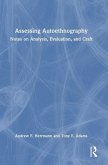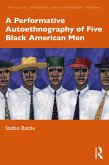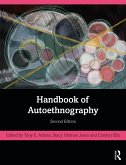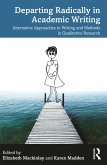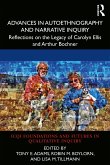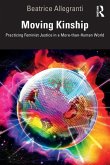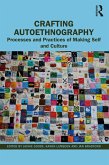Assessing Autoethnography provides readers with multiple ways to analyze autoethnographies and other forms of personal narrative writing. Given the proliferation of such forms across academic contexts, the book offers a guide of what autoethnography is, why it matters, and how to do it.
Taking each of the three parts of auto-, ethno-, and -graphy in detail, Herrmann, and Adams, provide criteria and points of discussion to ensure robust assessment of an autoethnographic work as a whole. Every chapter is accompanied with exemplars and considers issues such as ethics, storytelling, and good writing. The book discerns the kinds of personal experiences that often work best for autoethnographic projects and provide ways to evaluate fieldwork, interviews, and representations.
Written by two experts in the field, Assessing Autoethnography offers guidance to scholars and dissertation advisors, across diverse disciplines, in producing autoethnographic work and utilizing autoethnographic methods. The book will be of interest to researchers in the fields of Communication Studies, Education, Sociology, Women's and Gender Studies, Critical Race Studies, Mass Communication, English, and other related disciplines.
Taking each of the three parts of auto-, ethno-, and -graphy in detail, Herrmann, and Adams, provide criteria and points of discussion to ensure robust assessment of an autoethnographic work as a whole. Every chapter is accompanied with exemplars and considers issues such as ethics, storytelling, and good writing. The book discerns the kinds of personal experiences that often work best for autoethnographic projects and provide ways to evaluate fieldwork, interviews, and representations.
Written by two experts in the field, Assessing Autoethnography offers guidance to scholars and dissertation advisors, across diverse disciplines, in producing autoethnographic work and utilizing autoethnographic methods. The book will be of interest to researchers in the fields of Communication Studies, Education, Sociology, Women's and Gender Studies, Critical Race Studies, Mass Communication, English, and other related disciplines.



